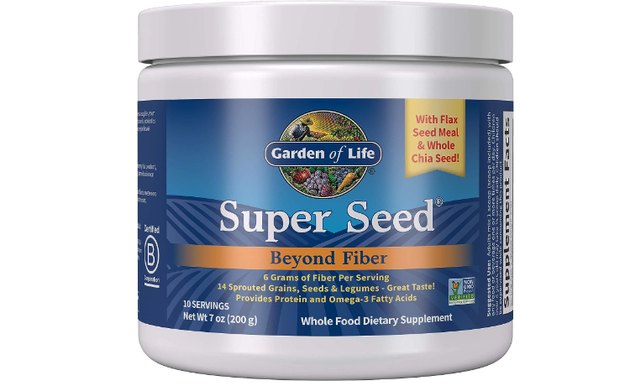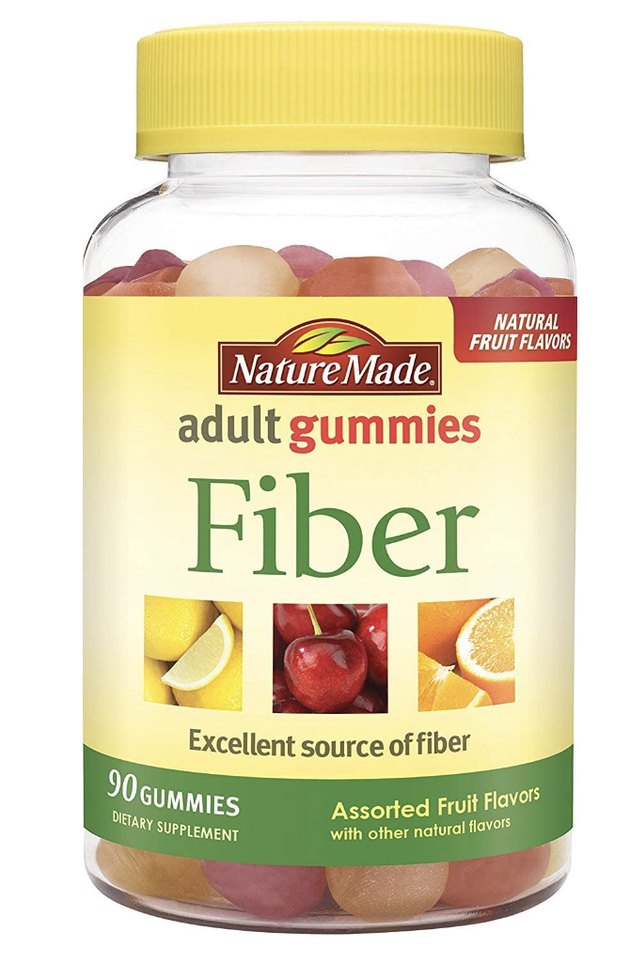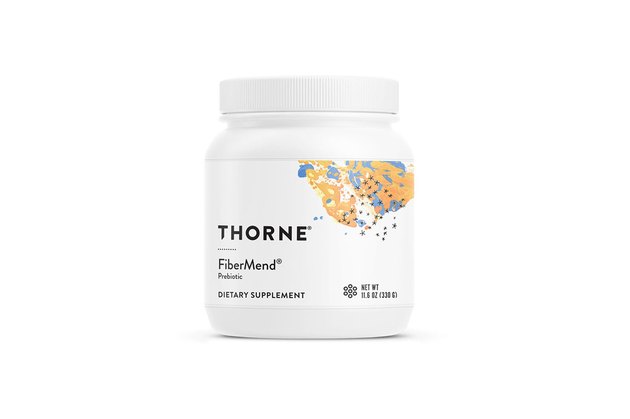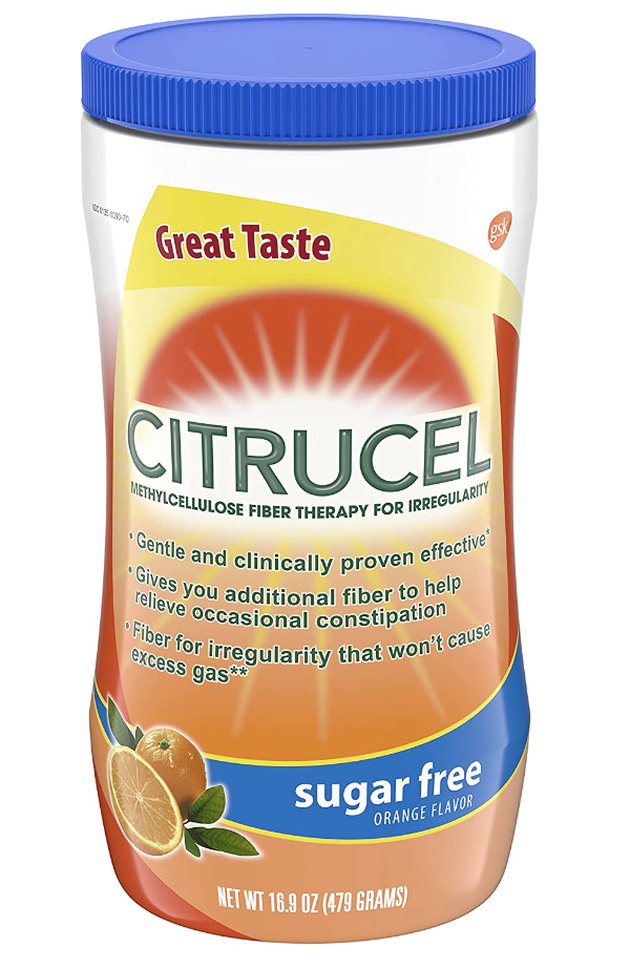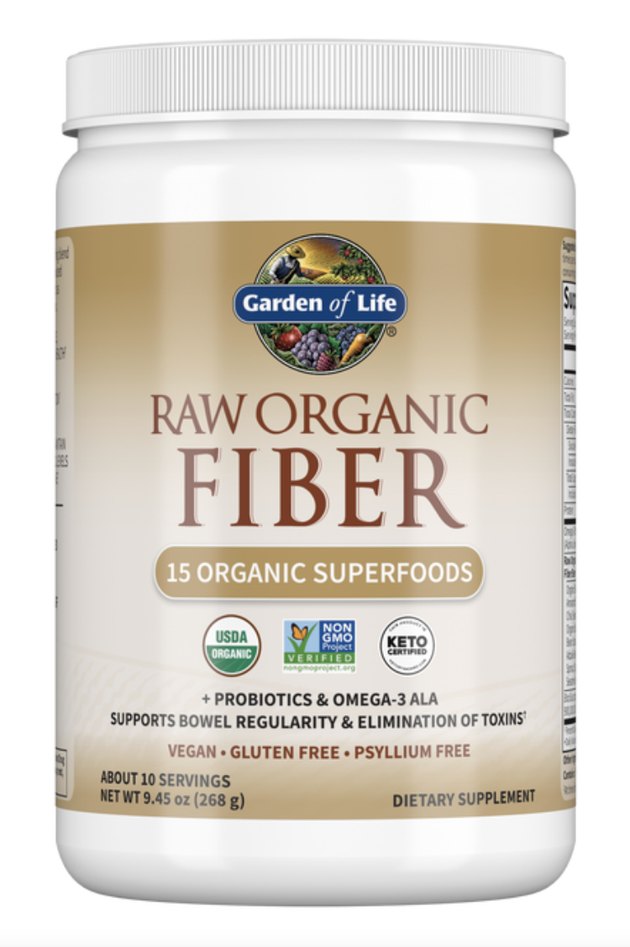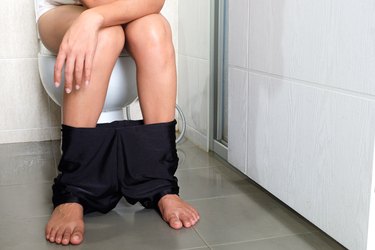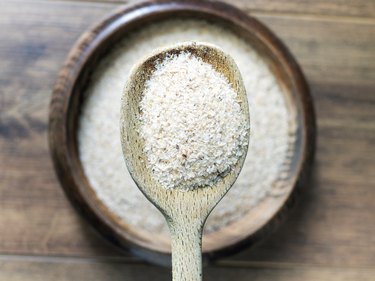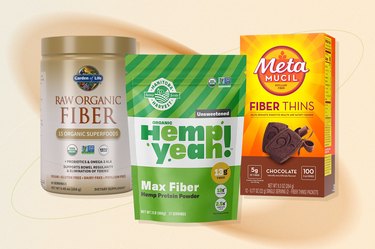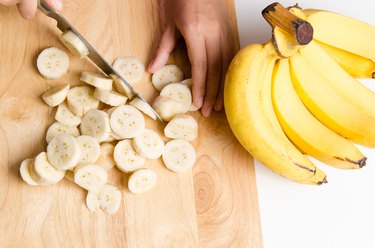
If you've got it, you know — constipation can pretty much ruin your day by making everything you do uncomfortable. Not to mention, constipation is the most common gastrointestinal (GI) complaint in the US, according to Johns Hopkins Medicine.
If you've experienced it, you've likely searched for the best fiber supplement for constipation relief, as these are known to ease the pain.
Video of the Day
Video of the Day
To be clear, constipation is classified as having infrequent — fewer than three times per week — bowel movements that also may be difficult or painful to pass, per Johns Hopkins Medicine. It can be accompanied by bloating and stomach pain.
Constipation doesn't always have one definitive cause, and there are many different types of constipation. If you have chronic constipation that is associated with another GI condition, it's best to seek advice directly from your doctor.
But if constipation has crept up on you, some common causes include:
- Dehydration
- Lack of exercise
- A low-fiber diet
- Certain medications, such as opioids or iron supplements
The Best Fiber Supplements for Constipation
- Best Overall: Garden of Life Super Seed Whole Food Fiber Supplement ($19.94, Amazon)
- Best Gummy: Nature Made Fiber Gummies ($12.99, Walmart)
- Best Unflavored Powder: Thorne FiberMend ($39.33, Amazon)
- Best Flavored Powder: Citrucel Fiber Therapy Powder ($14.97, Walmart)
- Best Organic: Garden of Life Raw Organic Fiber ($17.99, Amazon)
How We Chose
We tapped a team of MDs for their recommendations and advice on what to look for. The fiber supplements on our list were chosen based on the following criteria:
- Ingredients
- Type of fiber
- Dose
- Quality and safety
Learn more about how we cover products.
Soluble vs. Insoluble Fiber for Constipation
Fiber is a non-digestible carbohydrate. This means your body doesn't get any energy from fiber, but it provides value in other ways, especially when it comes to improving gut health.
One of the main benefits of dietary fiber is it keeps everything moving smoothly through your digestive tract.
There are two main types of fiber — soluble and insoluble fiber — and it may take a mix of both to help alleviate your constipation. (Indeed, fiber does help you poop.)
"Soluble fiber can dissolve in water and forms a gel-like substance in the intestines that can soften stool and make it easier to pass," says Max Pitman, MD, gastroenterologist and medical director at Salvo Health.
Some types of insoluble fiber, like cellulose, may help with constipation, too. It binds waste to help your body excrete it.
There are plenty of naturally high-fiber foods, and most contain a mix of soluble and insoluble fiber. Our experts say making changes in your diet and lifestyle should be your first line of defense when it comes to your digestive health. Drinking more water throughout the day, eating more fiber-rich foods and having good bathroom habits can make a major difference.
Tip
Remember to increase fiber in your diet gradually to avoid other GI issues, like gas and bloating.
But when drinking more water and increasing your fiber with food isn't enough, or if medical conditions or dietary restrictions keep you from getting the fiber you need in your diet, supplements or fiber capsules may be an effective tool. That said, you should always clear it with your doctor first.
When it comes to which fiber is best for constipation, the answer is both. So once you have the OK, look for a mix of soluble and insoluble fiber in your fiber supplements. Too much fiber of either kind can cause additional GI upset, so it's best to try and mimic what you might get from whole foods (a combo of both).
1. Best Overall: Garden of Life Super Seed Beyond Fiber
This fiber supplement from Garden of Life gets the nod for the best overall for brand reputation, whole foods, ingredient blend and price. Garden of Life is a reputable brand that is third-party tested by organizations like the NSF.
This whole-food fiber supplement tops our list because it gives you a blend of soluble and insoluble fiber., plus omega-3 fatty acids and gut-friendly probiotics.
"Research shows that probiotics can help keep you regular by improving the frequency and consistency of bowel movements," says Jeff Gladd, MD, integrative medicine physician and chief medical officer at Fullscript.
2. Best Gummy: Nature Made Fiber Gummies
Nature Made is a supplement brand known for quality and transparency — its products have earned certification from third-party supplement testing organizations like the United States Pharmacopeia (USP).
This gummy has fiber from inulin, which is a prebiotic soluble fiber. Inulin fiber has been shown to improve stool consistency and frequency of bowel movements when used to treat constipation, according to an April 2021 review in BMJ Open.
A serving size is 3 gummies, which can be taken at once or spaced out throughout the day. They are sweetened with monk fruit extract, a nonnutritive sweetener that does not add any additional calories, per the Cleveland Clinic.
3. Best Unflavored: Thorne FiberMend
For those who want an unflavored powder to mix into drinks or foods, Thorne's FiberMend may be a good choice. It contains 7 grams of fiber per scoop and has a blend of soluble and insoluble fiber.
If you're just starting to add fiber into your diet, you may want to start with half a scoop and move to a full scoop after a few days.
This is the priciest brand of the choices, but Thorne is another trusted brand with products that go through rigorous testing during each stage of production.
4. Best Powder: Citrucel Fiber Therapy
This fiber supplement for constipation comes in the form of methylcellulose powder, a type of insoluble fiber.
Each tablespoon of this Citrucel fiber supplement gives you 2 grams of fiber, which is a low dose to start with and may be ideal if you're just beginning to introduce more into your diet. If you want even more, you can take it a few times per day.
One important note: Citrucel isn't a long-term solution for chronic constipation. It is not recommended that you take Citrucel for any longer than one week because the type of fiber — methylcellulose — in Citrucel is insoluble, and it may act as a laxative (which isn't true of all fiber supplements). If you're still constipated after a week, talk to your doctor to help you find out why.
Each tablespoon has 60 calories and 4 grams of added sugar, so if you have diabetes or are otherwise managing your blood sugar, you may want to opt for the sugar-free version instead.
5. Best Organic: Garden of Life Raw Organic Fiber
The fiber in this USDA Certified Organic supplement from Garden of Life comes from a wholesome blend of sprouted seeds and grains like chia, flax and quinoa. The mixture gives you insoluble fiber and omega-3 fatty acids, with the added benefit of probiotics.
A word of caution on this blend: One scoop provides 9 grams of added fiber. "With any form of fiber, it's best to start with a low dose and slowly increase over time," Dr. Pitman says.
What to Look for in a Fiber Supplement for Constipation
When you're shopping for a fiber supplement for constipation, our experts suggest considering:
1. Ingredients
As mentioned, you want to buy a supplement with a blend of soluble and insoluble fiber. The reason is that insoluble fiber supplements may have laxative effects when taken for more than a week. The ingredients label on your product should say what type of fiber is in it.
You should also keep an eye out for additional ingredients that may improve your gut health, such as probiotics. Looking after your gut health is a good way to improve digestion and even lower your disease risk, according to the Harvard T.H. Chan School of Public Health.
2. Dose
Talk to your doctor before taking a fiber supplement for constipation. If you have chronic constipation, this is especially important. Your doctor can help you determine how much fiber (if any) you need to add, and what supplement dose is right for you.
If you're just starting to add fiber to your diet and decide to take supplements, make sure you start on a low dose, between 2 to 6 grams, and increase as needed.
3. Third-Party Testing
The supplement industry is not federally regulated the same way prescription medications are, which means companies can make unsupported claims about the efficacy of their products.
If possible, check to see if your supplement has been tested by a third party, such as Consumer Lab, NSF or the USP.
At a minimum, they should meet the FDA's standards for Current Good Manufacturing Practices.
Risks of Taking Fiber for Constipation
Getting enough fiber is helpful for preventing and alleviating constipation, but a supplement isn't meant to take the place of nutritious foods in your diet, according to our experts.
And fiber supplements aren't suitable for everyone. "Fiber supplements may inhibit the absorption of certain medications such as aspirin and anticonvulsants," Dr. Gladd says. "They may also not be appropriate for people with certain GI conditions, such as Crohn's disease."
Adding fiber to your diet means adding water to your diet. Without enough liquids in your system, taking some fiber supplements can actually make constipation worse, per the Cleveland Clinic.
A final piece of advice on fiber supplementation from Dr. Pitman: "If one supplement does not agree with you, a different type may be a better fit. Talk to your doctor about what type of fiber is best for you."
- Johns Hopkins Medicine: "Constipation"
- BMJ Open: "Efficacy and Safety of Inulin Supplementation for Functional Constipation: A Systematic Review Protocol"
- FDA: "Current Good Manufacturing Practices (CGMPs) for Food and Dietary Supplements"
- Cleveland Clinic: Sugar Substitutes
- Harvard T.H. Chan School of Public Health: The Microbiome
- Cleveland Clinic: High-Fiber Diet
Was this article helpful?
150 Characters Max
0/150
Thank you for sharing!
Thank you for your feedback!
